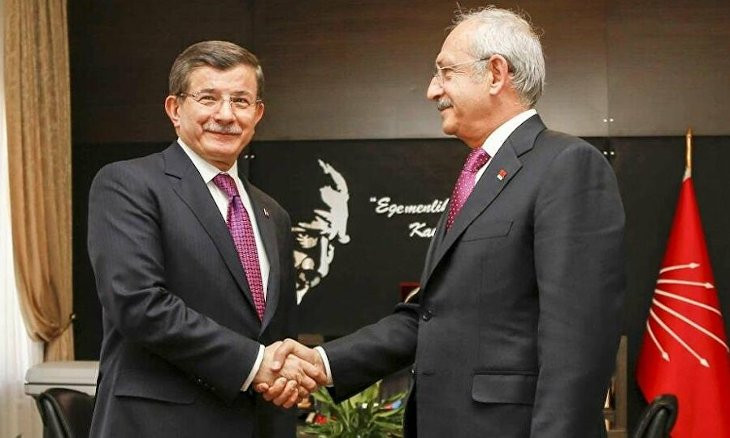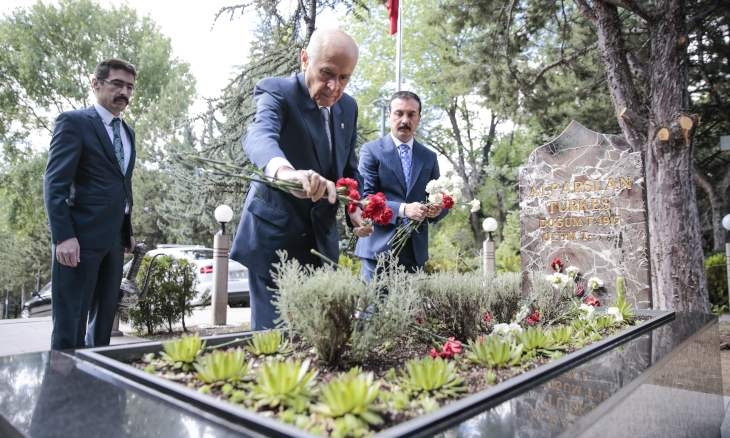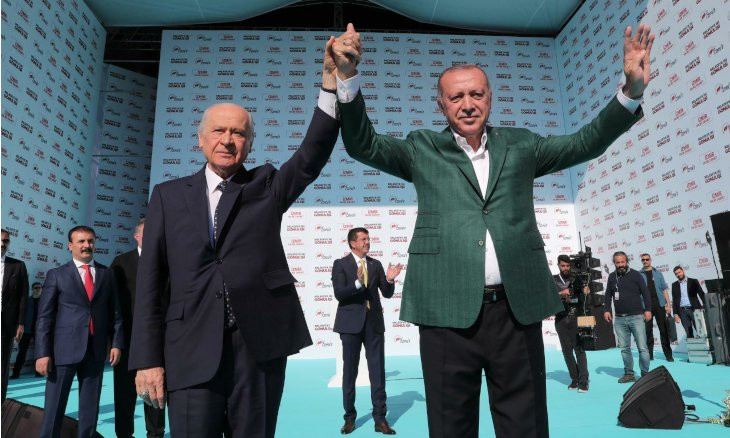MHP preparing to make formation of new political parties more difficult
MHP deputy chair Feti Yıldız has announced that he launched a legal work to make the criteria for the formation of new political parties more difficult. Yıldız described the newly founded parties as “bargaining parties,” claiming that they have been damaging the democracy. Yıldız's statement came as the AKP-MHP alliance has been preparing to amend the Political Parties Law.
Nergis Demirkaya / DUVAR
As the ruling Justice and Development Party (AKP) and its ally Nationalist Movement Party (MHP) have been preparing to amend the Political Parties Law, MHP deputy chair Feti Yıldız has announced that he launched a separate work to make it harder for the formation of new parties.
 Kılıçdaroğlu says several CHP MPs can quit and join DEVA, Future parties to secure their run in elections
Kılıçdaroğlu says several CHP MPs can quit and join DEVA, Future parties to secure their run in electionsYıldız described the newly founded parties as “bargaining parties,” claiming that they have been damaging the democracy. The MHP deputy said that the criteria for the establishment of new parties need to be readdressed. He has said it is very easy to found a political party in Turkey and he does not find it that a party can be formed with only 30 people.
After MHP leader Devlet Bahçeli in May proposed to change Turkey's Political Parties Law, the AKP and MHP formed separate commissions in June and launched the relevant legal works. Afterwards, the two parties' commissions are expected to merge their works under one roof and bring to the table a legislative proposal.
Although the AKP and MHP have said that the relevant legislation amendment is needed for the continuation of the presidential system, the new law is expected to complicate the new parties’ efforts of running in the elections.
 MHP leader calls for reforming political parties law to ensure continuation of presidential system
MHP leader calls for reforming political parties law to ensure continuation of presidential systemThe planned law came to the government's agenda following main opposition Republican People’s Party (CHP) leader Kemal Kılıçdaroğlu’s statements on the possibility of a number of CHP lawmakers quitting and joining the Democracy and Progress Party (DEVA) and Future Party, both founded by former government officials, to secure their run in the elections.
As the AKP-MHP alliance's commission works on the Political Parties Law are continuing, MHP deputy chair Yıldız said that he launched a separate legal work in an attempt to readdress the criteria for the formation of new parties.
According to the records of the Supreme Court of Appeals Prosecutor's Office, there are currently 92 political parties in Turkey. In the first eight months of 2020, some 13 new parties have been founded in the country.
 Erdoğan ally Bahçeli says change in Turkey's political parties and election law is a 'must'
Erdoğan ally Bahçeli says change in Turkey's political parties and election law is a 'must'According to the Constitution and the laws, it is not necessary to obtain a legal permission to found a new party. The Interior Ministry requires the relevant contact information of the 30 people who will be members of the newly founded party, as well as the party's address and name. The documents are then forwarded to the Supreme Court of Appeals Prosecutor's Office and the Constitutional Court. If there is a problem with regards to the party formation, the party executive board is given a warning. If this problem is not rectified, then a closure case is launched at the Constitutional Court.
However, not all parties can enter the elections. To be able to enter the elections, a party needs to be established at least six months prior to the elections date, to have held its big congresses or have at least 20 deputies in parliament. Out of the current 92 political parities in Turkey, only 20 of them currently satisfy these conditions. Future Party and DEVA are currently continuing their works regarding their organizational structures.
